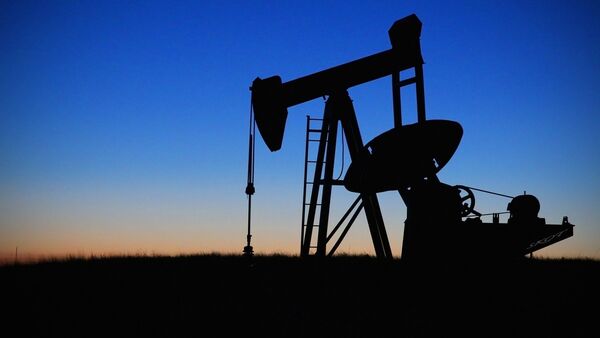Pierre Andurand, one of the oil sector's most high-profile speculators, posted a series of inflammatory tweets about the oil market prospects only to delete them several hours later. However, the Internet forgets nothing and soon the screenshots of his tweets started circulating on the social media and in the blogosphere, causing quite a stir among the oil market experts and journalists.
If such a scenario does play out, literally no one will be happy, and that includes the oil-producing countries. Certainly, a big supply shock and skyrocketing prices will be good for the state budgets of Saudi Arabia, Iran, Russia or Venezuela, but when the prices are too high, they become a drag on the world economy and may even cause a full-blown recession.
READ MORE: Light Sweet Revenge: Iran Reportedly Markets New Oil Brand Amid Sanctions Threat
When the oil price is too high, investments in non-extractive sectors of the oil-producing countries become unattractive, and when the price eventually drops, the oil-producing countries are left with underdiversified and inefficient economies.
Pierre Andurand is not the first to warn that continuous underinvestment in new capital-intensive projects is dangerous in the long run. Andurand is a speculator, who made his name and fortune betting on oil prices so, his position is obviously subjective, but there are other experts who share his concerns.
Here's Deloitte's take on the issue from 2016: "A lower-for-longer oil price environment has taken a toll on the capital spending of exploration and production (E&P) companies. Actual and announced capex cuts have gone below the minimum required levels to offset depletion, let alone meet any expected growth". If offsetting depletion is impossible, then a supply shock and a price spike are almost unavoidable.
In 2017 the situation did not improve in a material way. That year Thornburg Investment Management published a bullish take on oil prices, citing the same underinvestment concerns and claiming that the hopes of the US shale production are misplaced: "we think the market is overestimating the ability of U.S. shale producers to deliver enough volume to offset international declines, which could be intensifying due to recent underinvestment in long-term projects with significant volume growth potential, such as offshore production."
Strangely enough, Trump's decision to pull the US out of the Iran deal may help avert an oil supply shock. It surely is an unintended consequence, but it may have a huge influence on the future of the global oil market.
The US sanctions against Iran and Iran oil companies will be fully reinstated in 180 days. It is a safe bet to assume that Trump's administration ultimate goal is to reduce Iranian oil exports by at least 50% because otherwise, the government of Iran is unlikely to budge on any nuclear issue. Saudi Arabia and its allies from within OPEC may try to compensate for the lost Iranian crude.
READ MORE: Putin: Russia Needs to Get Rid of 'Dollar Burden' in Oil Trade
US shale companies will surely try to do the same. However, according to Bloomberg calculations, the estimates of the available spare production capacity vary widely from 1.96 million barrels a day to 3.41 million, so it is unknown whether the "Iranian barrels" can be replaced in order to keep a lid on prices, at least for the short term.
However, even if the "magic price" of $100 is reached within several months, it is quite likely that major oil companies will be reluctant to invest in capital-intensive projects out of fear that the price may drop at anytime, and if fear trumps greed, then the next decade will be the decade of $300 oil.
The views and opinions expressed in this article are solely those of the author and do not necessarily reflect those of Sputnik.






